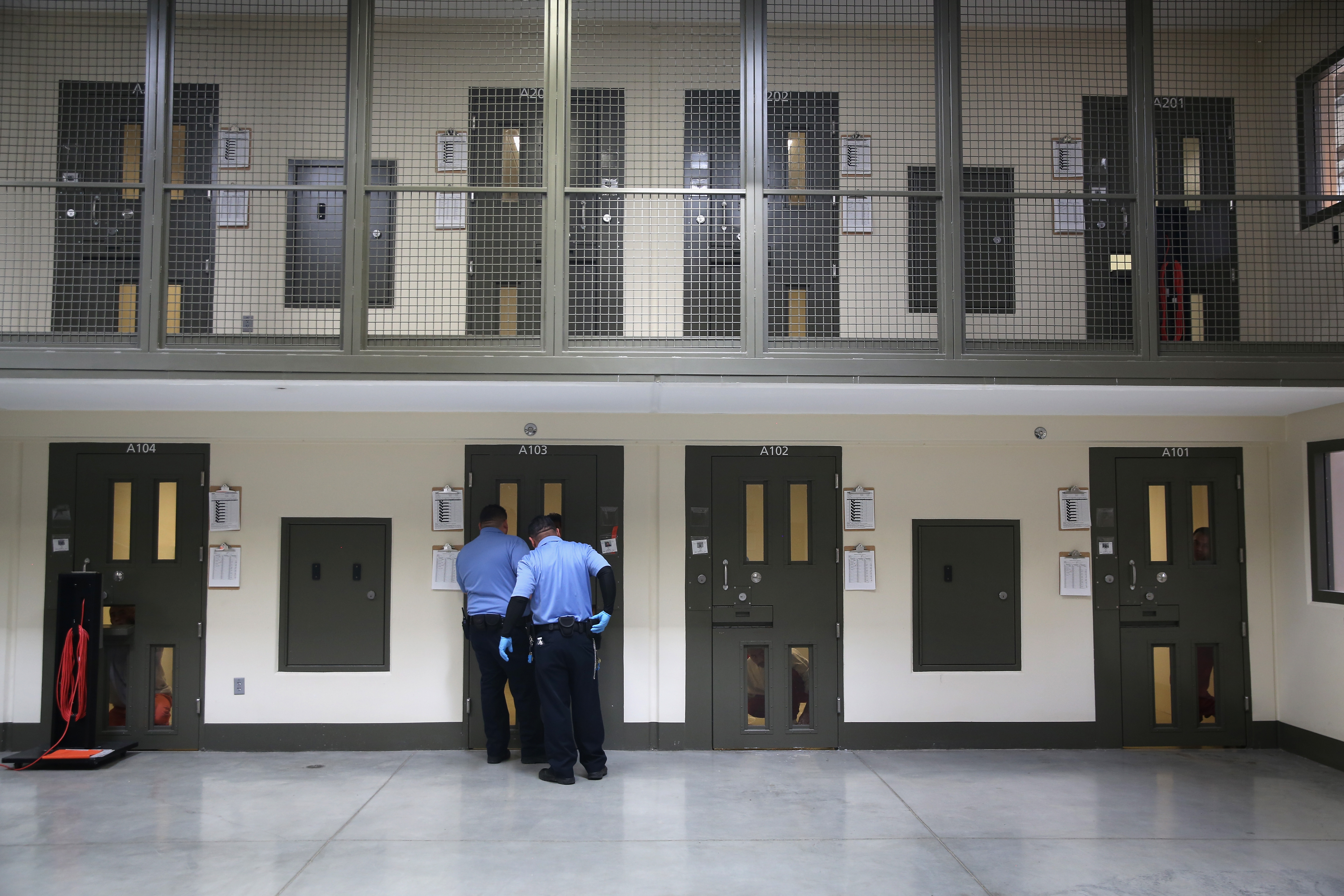ICE spends $2 billion every year to detain immigrants in notoriously unsafe private facilities


A free daily email with the biggest news stories of the day – and the best features from TheWeek.com
You are now subscribed
Your newsletter sign-up was successful
As the controversy surrounding American border policy swells, we've seen chain-link cages and heard the cries of children torn from their parents and stationed in immigration detention centers.
But these facilities aren't necessarily run by the government. Private prisons were home to 62 percent of immigrant detention beds and ran nine of the 10 biggest facilities in 2015, the nonpartisan Migration Policy Institute found in a report published last month. And they've been reaping major profits for decades.
Despite transferring some detainees to federal prison earlier this month, U.S. Immigration and Customs Enforcement still relies on private detention and spends $2 billion on it annually, NPR reported last year. That's $126 per day per immigrant in 2017, per MPI.
The Week
Escape your echo chamber. Get the facts behind the news, plus analysis from multiple perspectives.

Sign up for The Week's Free Newsletters
From our morning news briefing to a weekly Good News Newsletter, get the best of The Week delivered directly to your inbox.
From our morning news briefing to a weekly Good News Newsletter, get the best of The Week delivered directly to your inbox.
Proponents of private immigration insist competition drives costs down, MPI notes. But three major companies dominate 96 percent of private prison beds, and the largest, GEO Group, saw its profits triple from 2007 to 2014. GEO Group also spent $1.7 million on lobbying last year, made sizable donations to a pro-Trump super PAC, and has seen its stocks soar since President Trump's election.
The argument that private competition improves the quality of detention centers also seems moot. Human rights abuses are notoriously worse at private prisons, which is why the Justice Department tried to sever its ties with these companies in 2016, says MPI. But the Trump administration reversed, and major connections to private prisons persist to this day.
A free daily email with the biggest news stories of the day – and the best features from TheWeek.com
Kathryn is a graduate of Syracuse University, with degrees in magazine journalism and information technology, along with hours to earn another degree after working at SU's independent paper The Daily Orange. She's currently recovering from a horse addiction while living in New York City, and likes to share her extremely dry sense of humor on Twitter.
-
 How the FCC’s ‘equal time’ rule works
How the FCC’s ‘equal time’ rule worksIn the Spotlight The law is at the heart of the Colbert-CBS conflict
-
 What is the endgame in the DHS shutdown?
What is the endgame in the DHS shutdown?Today’s Big Question Democrats want to rein in ICE’s immigration crackdown
-
 ‘Poor time management isn’t just an inconvenience’
‘Poor time management isn’t just an inconvenience’Instant Opinion Opinion, comment and editorials of the day
-
 TikTok secures deal to remain in US
TikTok secures deal to remain in USSpeed Read ByteDance will form a US version of the popular video-sharing platform
-
 Unemployment rate ticks up amid fall job losses
Unemployment rate ticks up amid fall job lossesSpeed Read Data released by the Commerce Department indicates ‘one of the weakest American labor markets in years’
-
 US mints final penny after 232-year run
US mints final penny after 232-year runSpeed Read Production of the one-cent coin has ended
-
 Warner Bros. explores sale amid Paramount bids
Warner Bros. explores sale amid Paramount bidsSpeed Read The media giant, home to HBO and DC Studios, has received interest from multiple buying parties
-
 Gold tops $4K per ounce, signaling financial unease
Gold tops $4K per ounce, signaling financial uneaseSpeed Read Investors are worried about President Donald Trump’s trade war
-
 Electronic Arts to go private in record $55B deal
Electronic Arts to go private in record $55B dealspeed read The video game giant is behind ‘The Sims’ and ‘Madden NFL’
-
 New York court tosses Trump's $500M fraud fine
New York court tosses Trump's $500M fraud fineSpeed Read A divided appeals court threw out a hefty penalty against President Trump for fraudulently inflating his wealth
-
 Trump said to seek government stake in Intel
Trump said to seek government stake in IntelSpeed Read The president and Intel CEO Lip-Bu Tan reportedly discussed the proposal at a recent meeting
